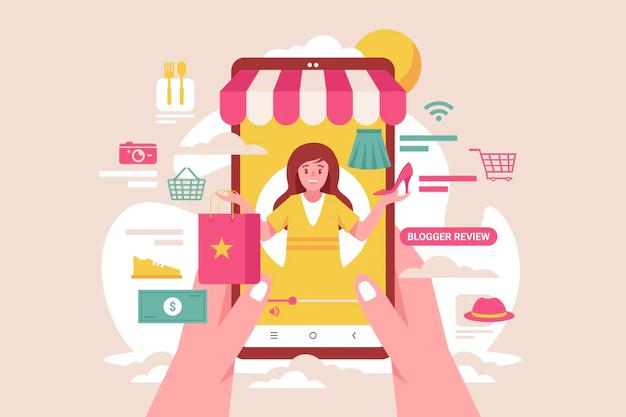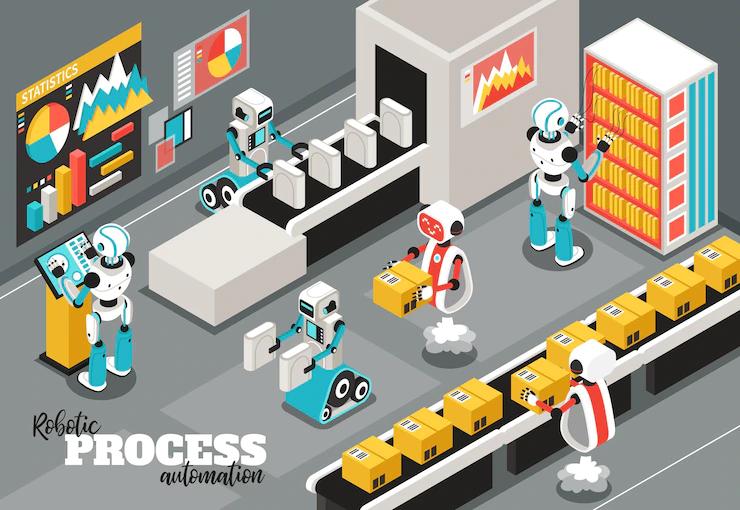RETAIL TECHNOLOGY TRENDS
The retail world uses advanced technologies to refine its business’s various aspects to improve customer experience. Artificial intelligence in business can allow companies to impact every customer positively, adding more ease to their overall experience and providing the best results. The retail technology trends are valid for both small and large companies. Moreover, the use of the latest technology can help the companies provide bespoke solutions using the latest technology to stand out and get more gains.

7
Here is our pick of the top 7 trends in retail technology that will shape businesses in 2023.
Seven Retail Technology Trends of 2023
1
Making online /offline shopping experiences more similar
Several stores now offer a service where users can buy the product online and pick it up from the store. The same-day delivery and online shipping also make it a convenient experience for buyers. As the methods of buying increase, companies must consider implementing point-of-sale systems more intelligently.
Some things to note:
How do online orders affect your store’s sales floor quantity? Do products on pickup hold affect the quantity on the floor?
The modern POS system must have answers to these questions to function correctly. You can only achieve this through a unified and connected system that can integrate with several other technologies.
2
Easing Store Navigation Through Indoor Positioning
Indoor positioning system (IPS) is a significant trend of the internet that many stores are adopting today. It revolves around creating a cohesive experience for the customers. It includes setting up the sales floor to drive sales.
With the help of artificial intelligence in business operations, you can create targeted deals for customers in specific sections of the floor.
Moreover, you can use information like where customers go once they have entered the store to better place products. It includes answering questions like:
Where do customers go right after they enter the store?

What location preferences do customers have? What areas on the floor do customers avoid, if any?
Furthermore, the technology can help you track items with IoT devices paired with AI ML Development services.
3 Use of Augmented Reality
Augmented reality has been a massive part of the retail world for some time now. And while its importance in the future is still debatable, it is being used abundantly in the business world to provide more immersive experiences to users.
Use of augmented reality for trying the product virtually before using it and deploying the technology to benefit navigation can change the user experience completely. It can aid shoppers in finding the products faster.
Additionally, retail workers can also leverage the technology to visualize shelves before they start setting them up.
4 Store Automation Using Artificial Intelligence in Business
Automation of tedious work can change the way businesses operate. And with AI ML Development, the future is not too far away. Possessing self-checkout and inventory management with artificial intelligence in business is possible.
In addition, companies can use automation to study consumer behavior, like their spending habits, to create better marketing campaigns. However, it would need a powerful AI engine capable of making appropriate connections and detecting trends faster than us.
AI is an exceptional tool that can leverage previous data to determine the future demands of specific products. The insights can help companies prepare better for market changes.
The use of demand forecasting also allows for sustainable consumption and production, leading to lesser waste.
With AI ML Development, the company uses a more versatile and adaptive forecasting approach.
5 Demand Forecasting Using AI 6 Automation Through Robots in Retail

Robots in retail have several applications, including delivery, customer service, and inventory management.
It can help automate delivery systems completely with autonomous vehicles. In customer service, robots to greet customers and make suggestions are possibilities that big brands like Hyundai are exploring.
Robotic inventory management can help identify misplaced products or alert the system when inventory runs low.
7 Voice Commerce
With the improvements in artificial intelligence in business, Natural Language Processing (NLP) will also strengthen. Currently, we are experiencing how smart AI assistants can get with Siri, Google Assistant, and Alexa. And they are improving the customers’ experience in the retail industry.
The IoT devices in the customer’s home can become the ultimate tool to market products.
Final
Thoughts:
Artificial Intelligence in Business is Here to Stay
The retail world uses Artificial Intelligence in business to improve the customer experience while increasing profits. Now, there are digital assets that users can buy, like the currently popular NFTs.
But the retail world is different. These are physical assets that people want to use. There are several competitors in the market. So, following the latest trends to ease their decisions is necessary to stay afloat, earn a profit, and then make a name for the company.
Source: https://bit.ly/3GVaVXj



